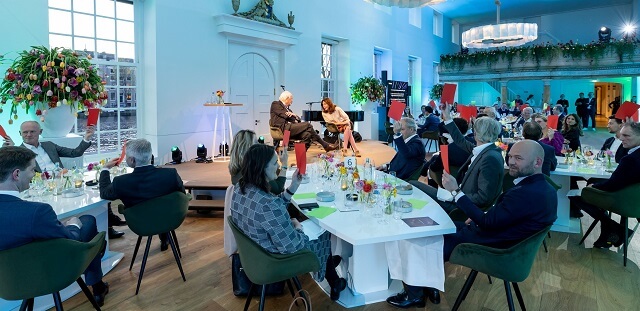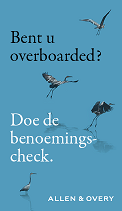The CFO is No Longer the Doomsayer Now That the Entire Board Is Thinking in Scenarios

In the Church Hall of the Hermitage in Amsterdam, the sun pours cheerfully through the windows. Large bunches of colorful tulips provide a bright entourage. But the world economy is anything but sunny. In mid-April, over 60 financial executives were invited to Deloitte's CFO dinner with the theme of navigating through uncertain times.
Many a CFO wonders how to anticipate the very real threats on the world stage. Inflation, rising interest rates, high energy prices, the war in Ukraine, import restrictions and climate change: for each company, the uncertainties have a different impact. One CFO may lie awake over the war for talent, another over high energy prices, rising debt, or more difficult financing of investments. But also, public opinion - is the energy transition going fast enough?, the exponential growth of cybercrime and problems in the supply chain are occupying people’s minds.
In addition, there are major concerns about the dependence on China. A CFO shares that 90 percent of the components needed for its production come from China. 'We can survive a war with Russia, but a conflict with China is another story. Rolling back that dependence is not easy; it is costly and takes years.' Deglobalization has been a trend for some time. Several companies are considering or are in the process of reshoring or bringing activities back to the Netherlands. 'That not only shortens delivery times and solves disrupted production chains, but it is also more sustainable,' explains one CFO. Journalist and moderator Jeroen Smit also points to French President Macron's plea to make Europe less dependent on companies outside the European Union.
Map top-10 risks
Especially in these uncertain times, the CFO has much to gain from scenario thinking; it helps prepare the company for possible uncertainties. Some CFOs also focus on the so-called black swans, situations of which the chance of them becoming reality is extremely small - but of which the impact if it does happen will be huge. However, it is difficult to make major strategic decisions based on a black swan scenario. Says one participant, ‘It is hard to sell those to shareholders.’
Despite busy schedules, many CFOs make time to think about their company’s long-term risks. They map out the top 10 risks and regularly put them on Board agendas, creating contingency plans for each risk. One company also implements controlled disaster scenarios. ‘We shut down production in a particular country or fake a computer failure. That costs a lot of money and time but is extremely important to figure out how to manage such an incident. Moreover, this way you make not only the company top structure but also involved employees aware of unexpected situations,’ adds a participant.
Concerns about banking crisis
Professor of economics Sweder van Wijnbergen does not expect, as for example DNB, that the inflation rate will be at 2 percent in 2025. ‘Interest rates should be pushed up more firmly, to about 6 to 7 percent.’ Van Wijnbergen also argues that the European Central Bank (ECB) has accommodated inflation for far too long, and that the ECB continues to do so because of interest rates - in his view - that are too low.
Sandra Phlippen, chief economist of ABN AMRO and professor of sustainable banking, in addition has concerns about the role of the unions. ‘I understand very well that the unions are laying down higher wage demands in these times, but it is dangerous for the economy.’ Phlippen also points out that not only do higher wages influence inflation, but the massive government support to offset the energy crisis has also driven up prices tremendously.
What impact will the rising interest rates have on business? Not all CFOs expect to remain in control over the next 1.5 years. ‘Rising interest rates are already affecting business,’ said one. ‘Customers are paying later and sometimes putting on the brakes. Profitability is down.’ A fellow CFO puts the higher interest rates in perspective. ‘In recent years, money has been extremely cheap. A large amount of debt is outstanding at attractive interest rates.’
A good number of CFOs are concerned about a new banking crisis. One CFO clarifies, ‘We cannot really oversee what impact the rise in interest rates will have on international economies, so we take it seriously.’ An executive explains that his company exited the Credit Suisse bank a few months ago - just in time.
Simple math
To get more traction in an uncertain world, CFOs could make more use of artificial intelligence. That advice is given by Roderick Lucas, ai specialist at Deloitte Tax & Legal and assistant professor at the Free University of Amsterdam and Tilburg University. Lucas is currently developing an artificial intelligence system that facilitates and automates research into European case law. The solution, named Moonlit.ai, will be a gamechanger, according to Lucas. ‘In the event of a legal conflict, a lawyer or tax expert no longer needs to go through large amounts of court cases. The system not only translates case law, but also compares cases with each other.’
Lucas argues that the technology behind artificial intelligence is not new or startling, as the media often reports. During the CFO dinner, Lucas illustrates in Excel how an algorithm is created. Several guests are asked to provide shoe size and height. With a simple formula, you can turn this data into an algorithm. With this, shoe sizes can be predicted based on gender and body height. With the experiment, Lucas makes it clear that ‘it is not magic that comes from deep learning, it is just math.’
Turbulence as an advantage
Despite the turbulent world, a positive atmosphere prevails at the CFO dinner. The turbulent times also have an advantage for the financial manager, concludes discussion leader Jeroen Smit. ‘The CEO pays attention more than ever. Whereas the CFO used to be called a doomsayer if he put risks on the table, the entire Board is now aware of the importance of scenario thinking.’
This article was published in Management Scope 05 2023.

